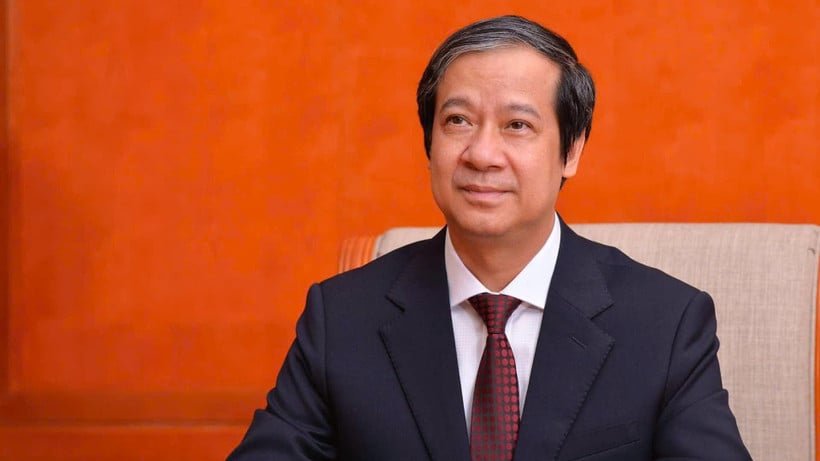
The interview focuses on the past journey, outstanding achievements and major directions of the industry in the coming time.
Reporter : Looking back on the journey from after the August Revolution in 1945 to before the renovation, Vietnam's education has overcome many difficulties and challenges, making important contributions to the country's revolutionary cause. According to the Minister, what are the most outstanding achievements during this time?
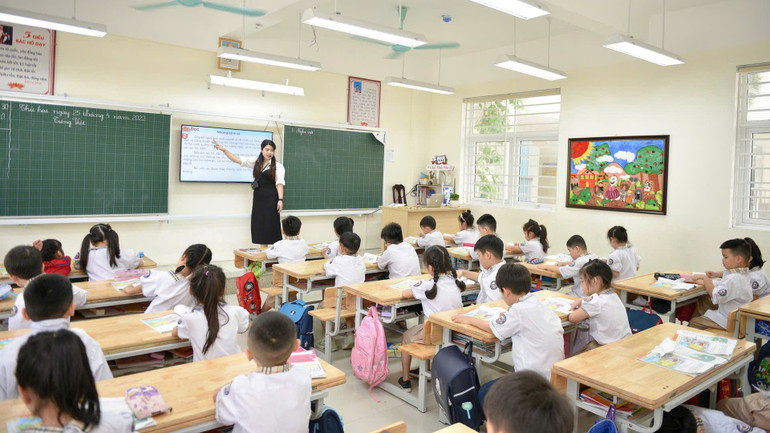
Minister Nguyen Kim Son: Immediately after the success of the August Revolution, the Ministry of National Education was established, with the mission of building a completely new education system, of the people, by the people and for the people.
Under the leadership of the Party and President Ho Chi Minh, the new education system was established on the progressive principles of “Nationalization, scientificization , popularization”, culminating in the 1950 Education Reform, which made Vietnamese the official language of instruction. During the period of 1945-1954, the Popular Education and Cultural Supplementary Education movements eliminated illiteracy for millions of people, raising the people’s knowledge. Despite the war, the school system was continuously expanded to train a generation of “Resistance Citizens”, the core human resource for the cause of “resistance and nation building”.
During the period 1945-1954, the Popular Education and Cultural Supplementary Education movements eliminated illiteracy for millions of people, raising the people's knowledge. Despite the war, the school system was continuously expanded to train a generation of "Resistance Citizens", the core human resource for the "resistance and nation building" cause.
During the period 1954-1975, although the country was divided and engulfed in the flames of war, education still achieved remarkable results. The North basically eliminated illiteracy. The 1956 education reform built a complete national education system; tens of thousands of cadres, intellectuals, engineers, doctors, and teachers were trained, becoming the key force in building the North and supporting the South. In the liberated areas of the South, revolutionary education proved its flexibility and persistence, building a network of democratic schools and training cadres to serve the resistance.
After the Great Victory of Spring 1975, although “North and South were reunited”, the country faced numerous difficulties. During the period of 1975-1986, the most outstanding achievement was the successful unification of the national education system. Despite the crisis, the school network was maintained and expanded to all regions, ensuring the right to education for tens of millions of people; success in eliminating illiteracy and improving people's knowledge; and at the same time, building a comprehensive system of educational guidelines and policies - the guiding principle for the sector's activities in the following years.
Reporter: In its 80-year history, the education sector has constantly innovated, but the most vigorous innovation also began with the country's innovation. How has education changed over the past 40 years, Minister?
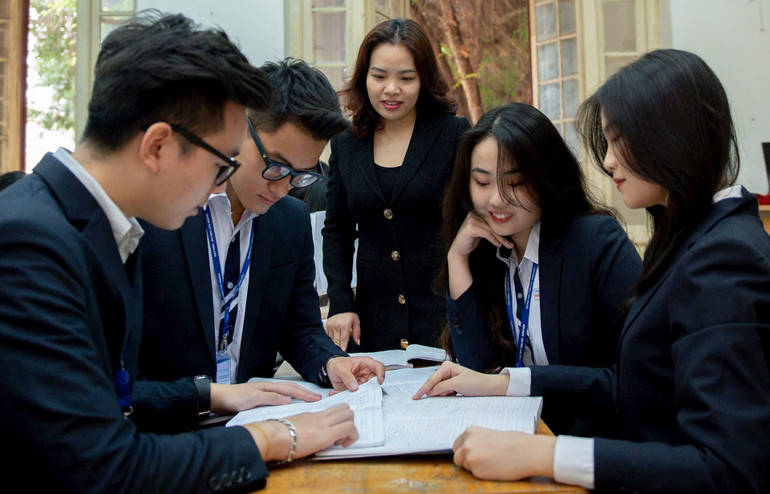
Minister Nguyen Kim Son : In the process of innovation and integration, the viewpoint of "education is the top national policy" is strongly concretized. Resolution No. 29-NQ/TW dated November 4, 2013 of the 8th Central Conference, Session XI, determined to fundamentally and comprehensively innovate education and training, shifting from mainly equipping knowledge to comprehensively developing learners' qualities and capacities; synchronously innovating goals, contents, methods, and management mechanisms. Documents of the 13th Party Congress (2021) set the task of comprehensively developing Vietnamese people, building an open, practical, practical, modern, and integrated education; associated with science and technology, innovation, digital transformation; at the same time, attaching importance to education in ethics, lifestyle, culture, history, and national identity.
Along with the Party's orientation, the legal system and policies have been improved, notably the promulgation of the Law on Education, the Law on Higher Education, the Law on Vocational Education, the Law on Teachers, the Resolution of the National Assembly on innovation of general education programs and textbooks, the Education Development Strategy to 2030, with a vision to 2045... This is an important legal corridor to both expand learning opportunities and improve the quality of human resources.
Implementing the policy of fundamental and comprehensive innovation in education and training, education has undergone strong "transformations" in recent times. Notably, the 2018 General Education Program marked a shift from teaching and learning that focused on imparting knowledge to developing competencies; increased integration in primary schools and differentiation in secondary schools; promoted STEM education and experiential activities; and linked assessment to practical competencies. The quality of education has changed positively, as demonstrated by the PISA 2022 results, which are approaching the OECD average.
The school network has been completed; universal preschool education for 5-year-old children has been maintained; the rate of primary school enrollment is high; credit policies, scholarships, and support for disadvantaged students, disadvantaged areas, and ethnic minority areas; and inclusive education for children with disabilities has been implemented synchronously in a fair and inclusive manner.
Higher education and vocational education are linked to the labor market and socio-economic development requirements. Many schools have formed an innovation ecosystem, incubating start-up businesses; research topics are linked to practical needs and more and more higher education institutions are present in international rankings. Applying information technology and digital transformation, especially after the Covid-19 pandemic, has become one of the key tasks, contributing to innovation in teaching, learning, management methods and improving the quality of education.
Reporter: Looking back at 80 years of history, from the outstanding achievements as well as the shortcomings and limitations, what lessons need to be drawn, Minister?
Minister Nguyen Kim Son: The first lesson is to firmly position people at the center, consider student happiness and social progress as important measures, not chasing after scale or achievements, but aiming at true quality and comprehensive development.
The second lesson is that institutions must be one step ahead. Only when laws and policies are clear, consistent, transparent, accountable, and have an independent monitoring mechanism, can innovation have a sustainable foothold and minimize implementation risks. All policies must be accompanied by resources, roadmaps, and evaluation criteria; avoid spreading out and avoiding movements.
The third lesson is that teachers are the decisive factor. Without a team with adequate qualifications, capacity and professional conditions, any program, textbook, equipment or technology cannot be fully effective. The Law on Teachers is a big step forward, but more important is to organize and implement it seriously and synchronously; create a safe and honorable environment; reduce administrative burden; so that teachers can fully devote themselves to their profession.
The fourth lesson is that innovation must be based on scientific and practical evidence. All adjustments must be measured and evaluated objectively; teachers, students, parents and the professional community must be listened to; responsibility must be taken, autonomy and creativity must be encouraged, and accountability must be given.
The fifth lesson is to link education with science and technology, businesses and the labor market. When training is linked to research, innovation and practical needs, learners' capacity will be truly useful, competitive and adaptive; at the same time, it is necessary to promote more strongly the role of localities in ordering training and using human resources.
Reporter: Right before the 80th anniversary of the founding of the country and the 80th anniversary of the establishment of the Ministry of National Education (now the Ministry of Education and Training), the Politburo issued Resolution No. 71-NQ/TW on breakthroughs in education and training development. To implement this resolution, in the coming time, what specific tasks will the Ministry and the entire education sector focus on, Minister?
Minister Nguyen Kim Son: The country is entering a new era, education is also facing new opportunities to affirm its role as a leading national policy. On the basis of 80 years of achievements, the entire sector needs to focus on organizing the drastic implementation of Conclusion No. 91-KL/TW on continuing to fundamentally and comprehensively innovate education and training; Education Development Strategy to 2030, vision to 2045; Resolution of the Politburo on breakthroughs in education and training development with the following key tasks:
Firstly , continue to narrow the quality gap between regions; develop an open, interconnected educational ecosystem, promote lifelong learning; effectively use target programs.
Second, summarize and evaluate the implementation of the 2018 General Education Program; flexibly adjust in an open direction; focus on STEM education, digital skills, life skills, foreign languages, especially English; increase the effectiveness of capacity assessment; focus on preschool education associated with the requirements of fundamental and comprehensive innovation in education and training. In continuing education, develop community learning centers and open online learning models and innovate enrollment in a fair and transparent manner.
Third , strongly develop high-quality human resources for industrialization, modernization, digital transformation and green economy; promote university autonomy associated with accountability; promote institute-school-enterprise linkage; innovate vocational education according to labor market needs associated with practice, internship, and national vocational skills standards.
Fourth , effectively implement the Law on Teachers. Issue synchronous guidance documents; promptly realize salary scales, tables, allowances, and benefits; standardize job titles and professional standards; promote training on digital platforms and establish a mechanism to protect the honor and dignity of teachers.
Fifth , promote digital transformation across the sector; complete databases; electronic learning records, open digital learning materials; ensure digital access for all students; encourage the application of artificial intelligence in teaching, learning and administration.
Sixth , mobilize and use resources effectively, maintain budget expenditure for education at a minimum of 20%; perfect the mechanism for ordering and bidding for public services; encourage public-private partnerships; increase publicity, transparency, and accountability; expand independent monitoring so that money spent on education creates the highest value; review and plan the network of educational institutions. Seventh, strengthen social trust in education; promote policy communication; honor advanced models; build a humane and safe school culture; strengthen family-school-society ties; prevent school violence, focusing on students' mental health.
Reporter: What message does the Minister want to convey on the occasion of the 80th anniversary of the Ministry's founding?
Minister Nguyen Kim Son: Education and training is the cause of the Party, the State and the entire people. With the wise and consistent leadership of the Party, the unified, effective and efficient management of the State, the support of all classes of people and the business community, and the sense of responsibility, dedication and desire for innovation of the teaching staff, we have every reason to believe in new, steady steps forward.
Continuing to adhere to the goal of improving people's knowledge, training human resources, nurturing talents; promoting innovation, digital transformation; developing inclusive, equitable, and quality education; closely linking education with science, technology, and the labor market, we will successfully build an advanced, modern, humane Vietnamese education system imbued with national identity. That is a solid foundation to realize the aspiration of developing a prosperous and happy country, aiming for two 100-year goals: 2030 marks the 100th anniversary of the founding of the Party, becoming a modern industrialized developing country with high average income; and 2045 marks the 100th anniversary of the founding of the country, becoming a developed socialist country with high income.
Thank you very much Minister!
Source: https://nhandan.vn/giao-duc-va-dao-tao-tru-cot-phat-trien-nen-tang-tuong-lai-post904512.html




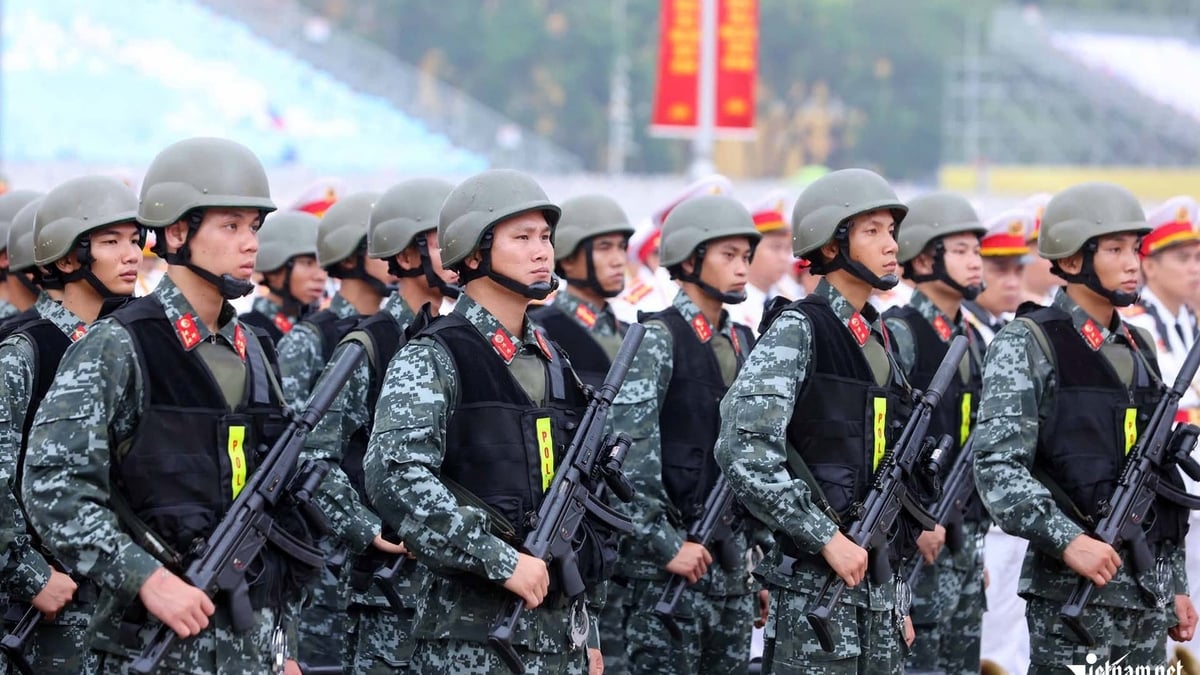
![[Photo] President Luong Cuong receives Speaker of the New Zealand Parliament Gerry Brownlee](https://vphoto.vietnam.vn/thumb/1200x675/vietnam/resource/IMAGE/2025/8/29/7accfe1f5d85485da58b0a61d35dc10f)
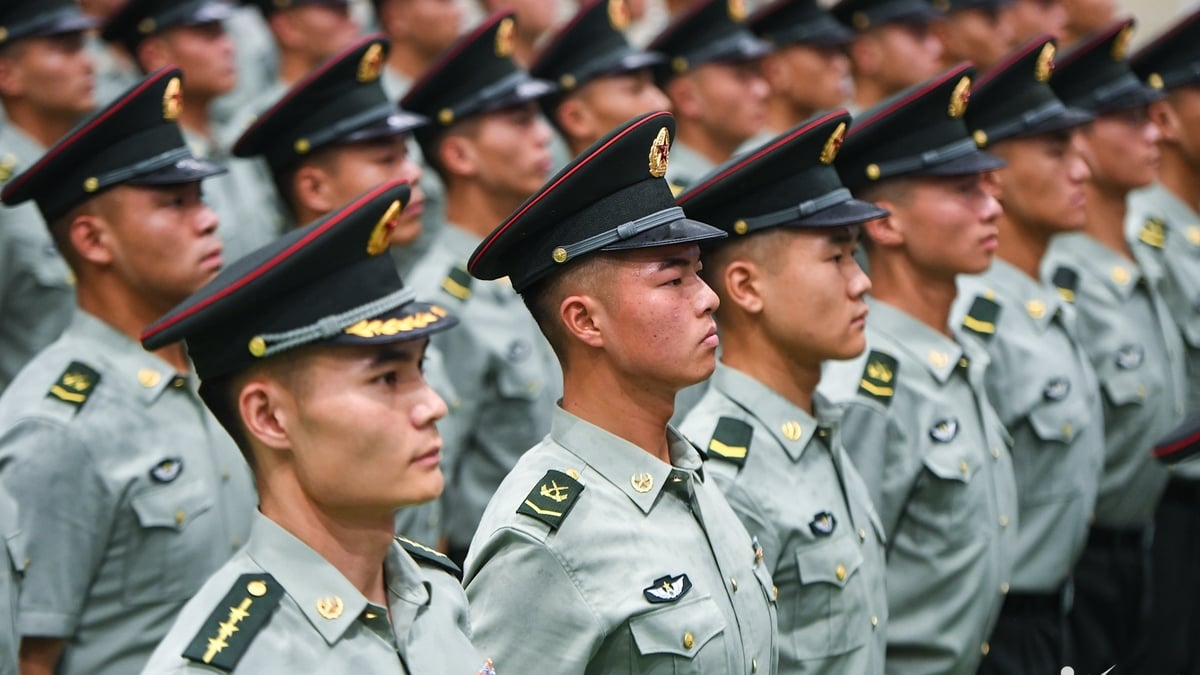
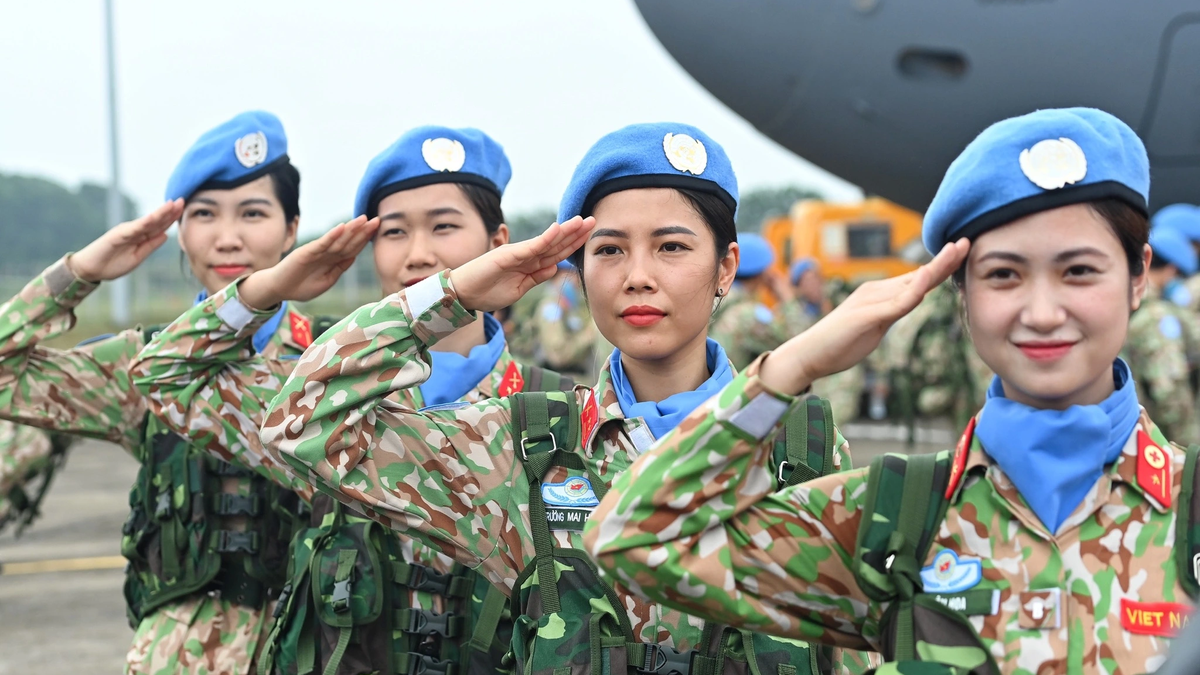

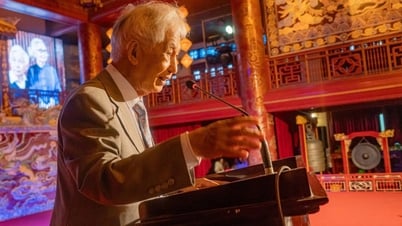

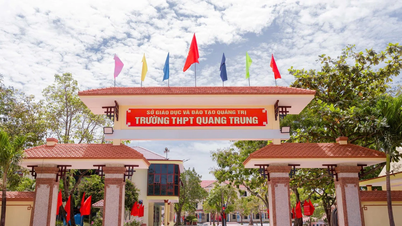

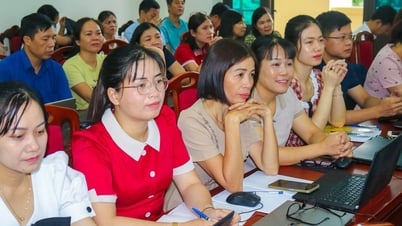
![[Video] "Building a STEAM LAB classroom to meet the 2018 general education program"](https://vphoto.vietnam.vn/thumb/402x226/vietnam/resource/IMAGE/2025/8/29/6a94c4cc91f94ad9b58f5d500860d6fa)
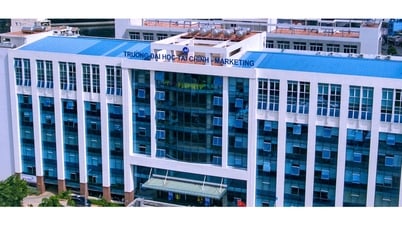
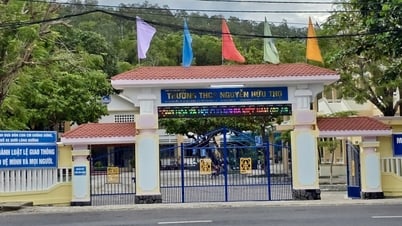





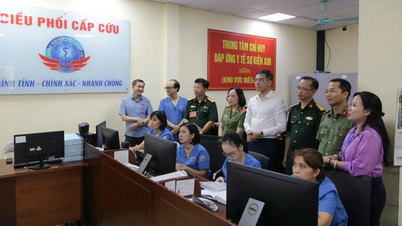
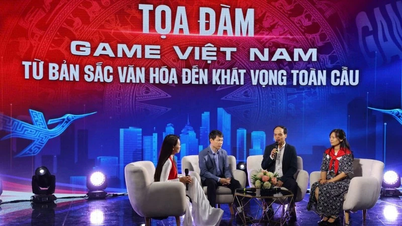


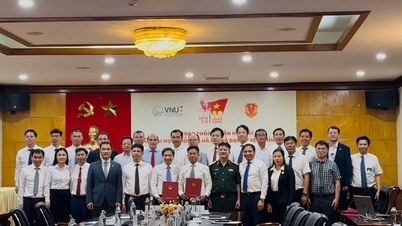
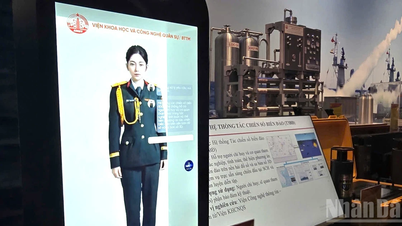








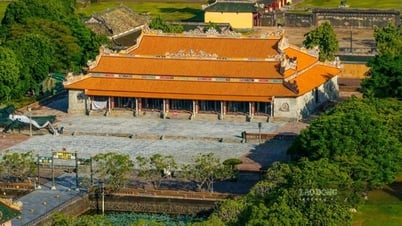


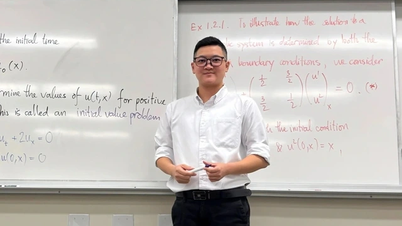
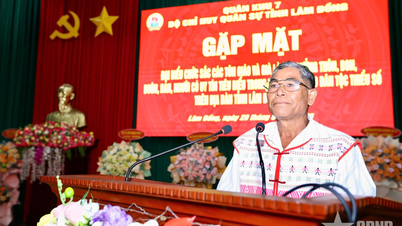

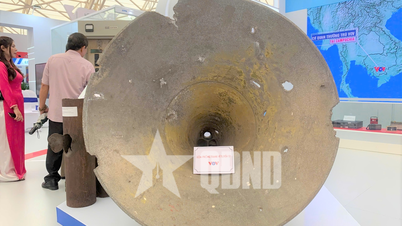

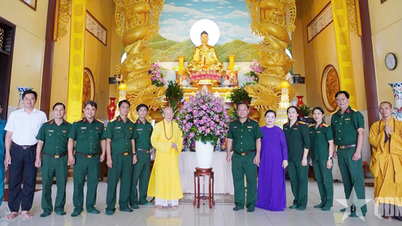
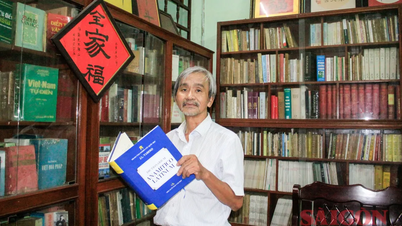

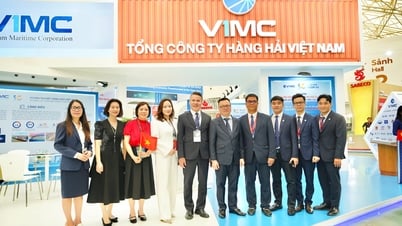



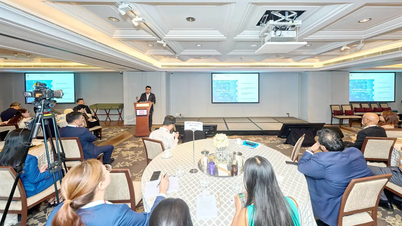
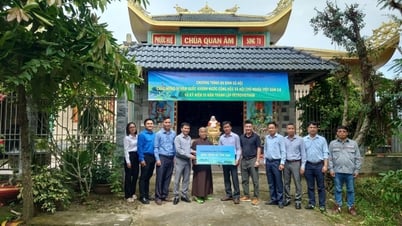

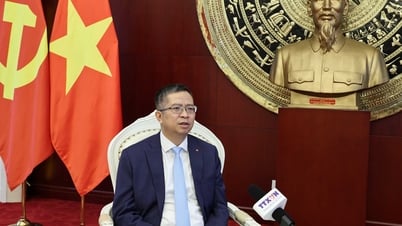
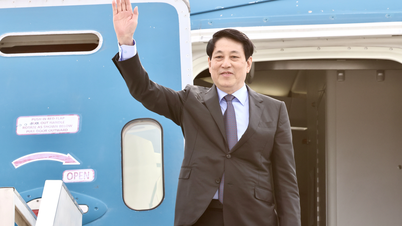
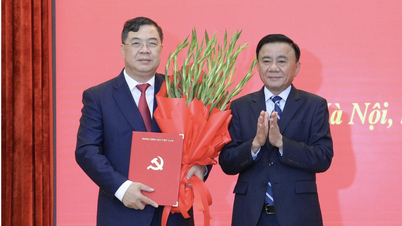
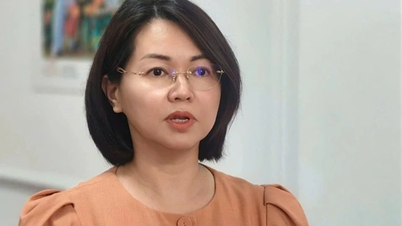
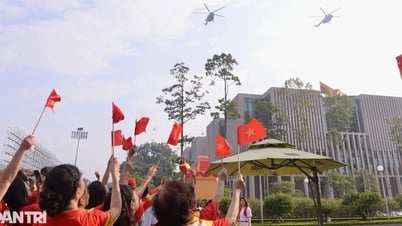

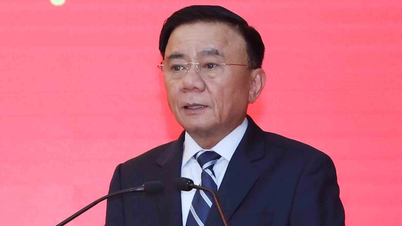
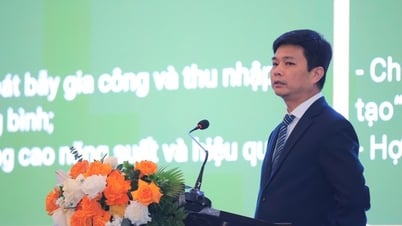


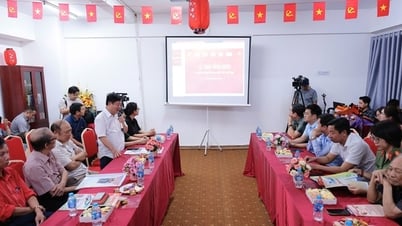
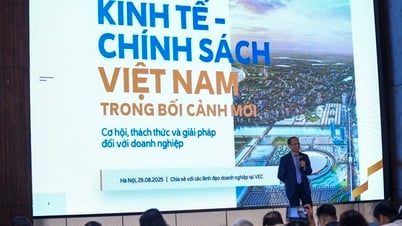
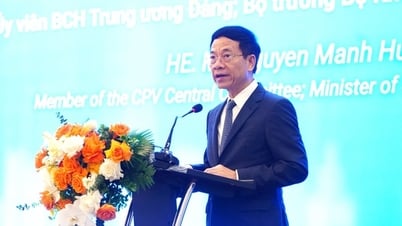
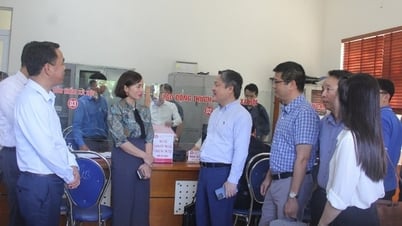


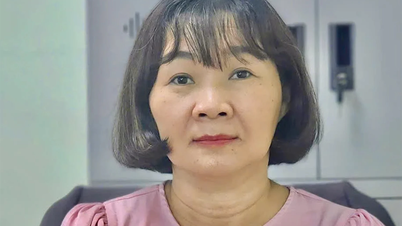

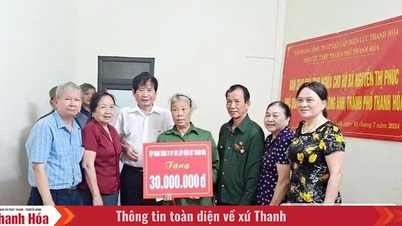

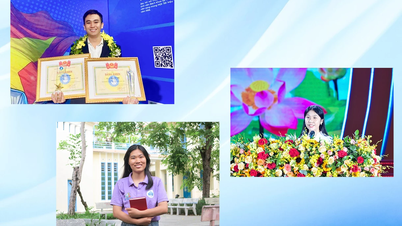
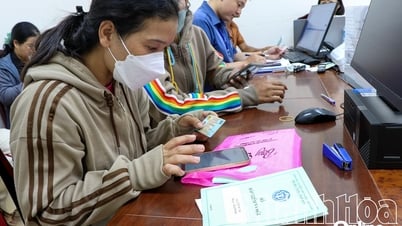
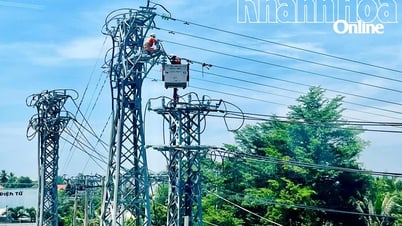










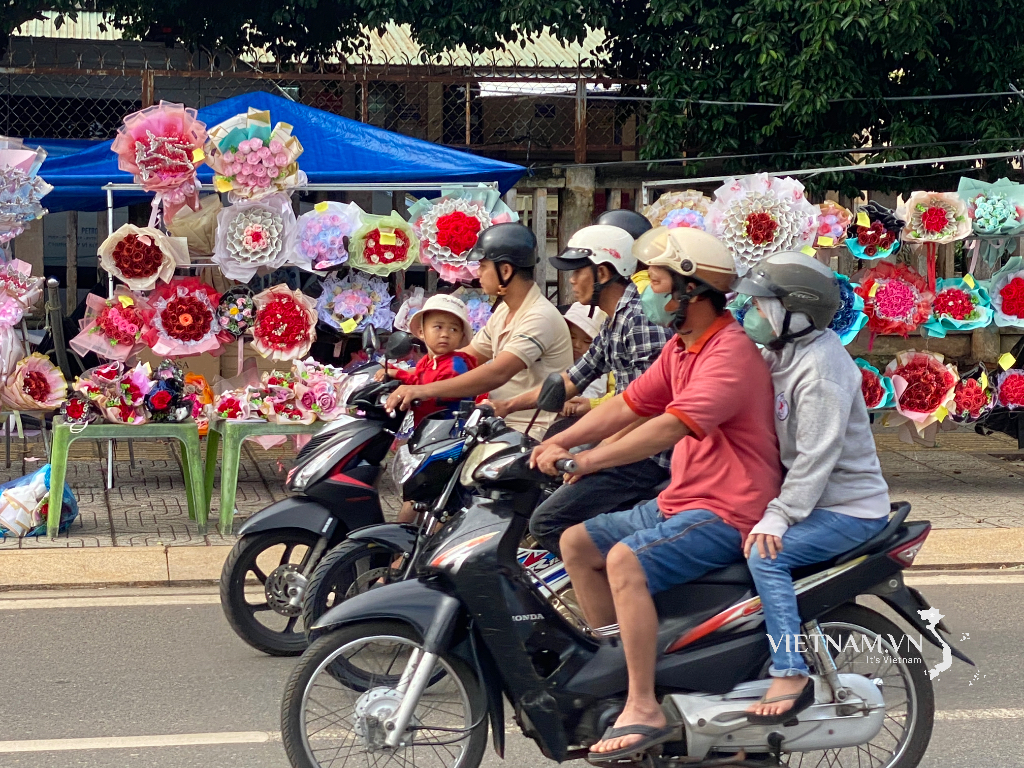

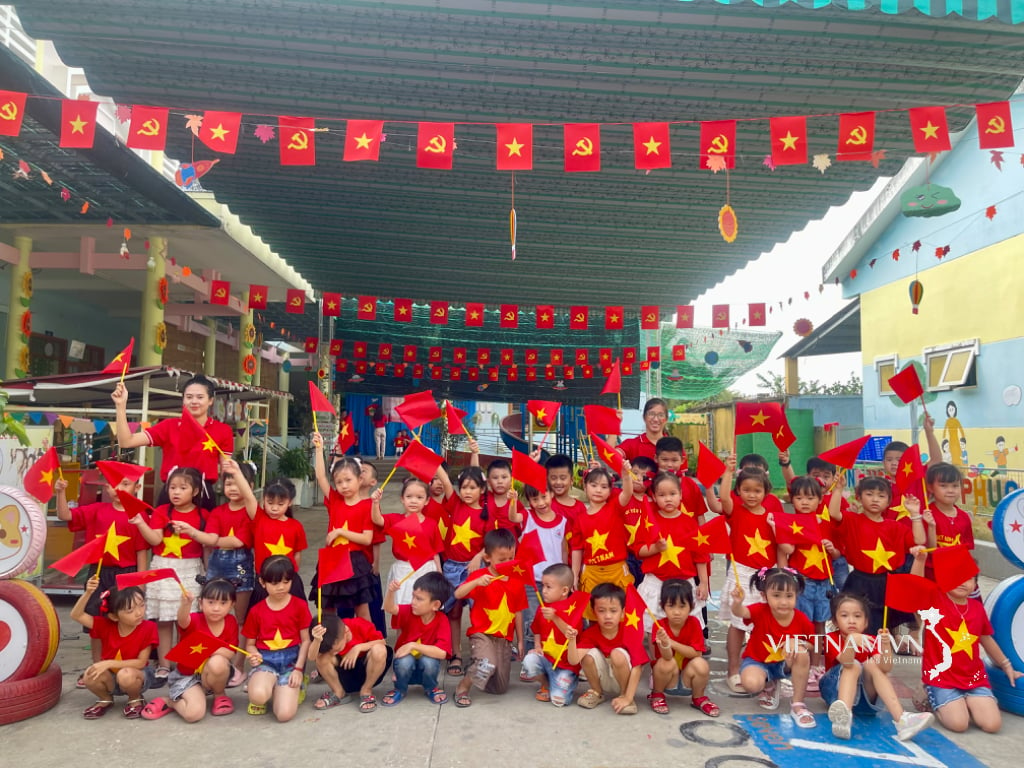
Comment (0)